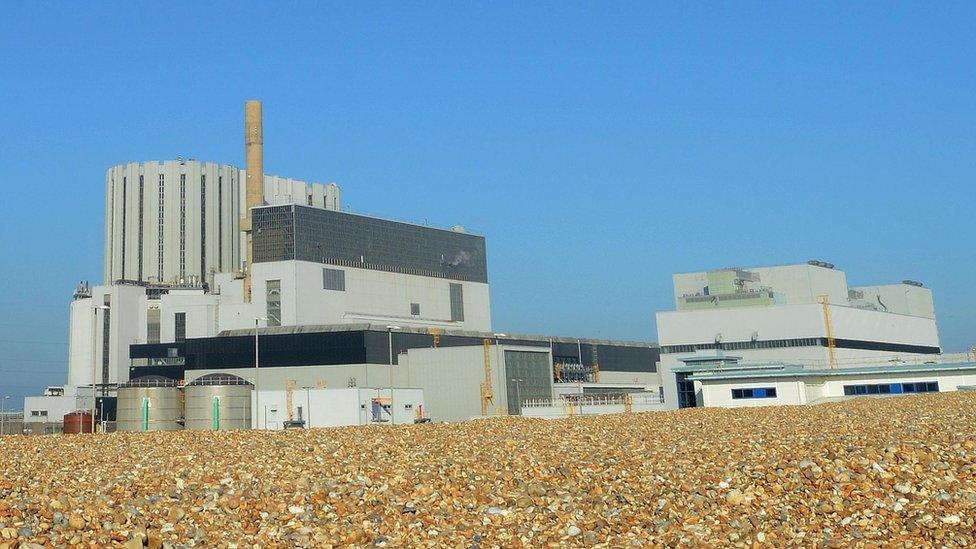'Long journey ahead' for nuclear plant clean-up
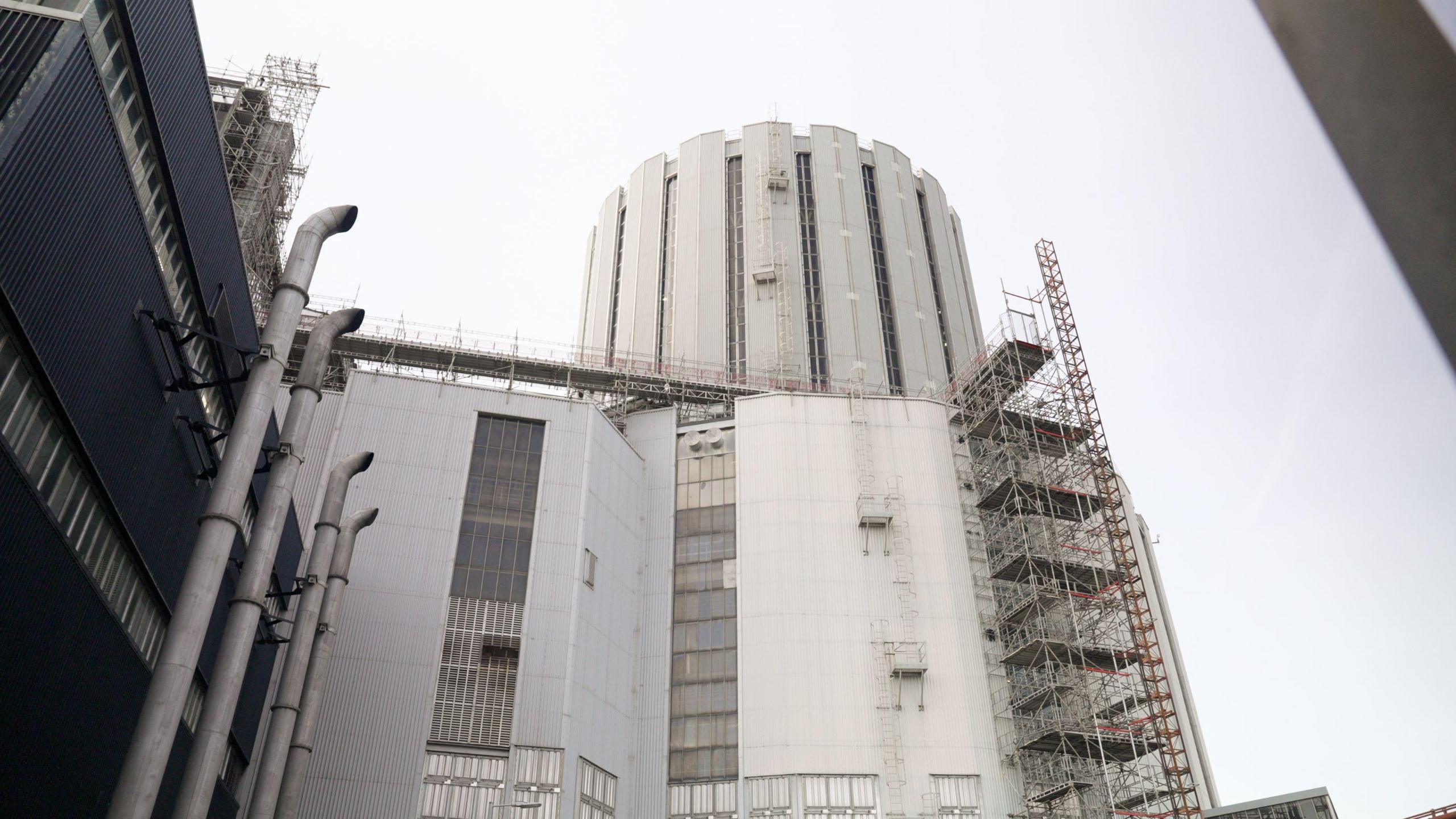
The turbines stopped turning at Dungeness B nuclear power station in 2018
- Published
It took about 16 years to build Dungeness B nuclear power station, but to return the site to its original state will take nearly a century.
This is the scale of the task facing EDF as the company continues the process of removing the uranium from this decades-old facility that sits on a remote headland on the Kent coast.
The turbines stopped turning at Dungeness in 2018 and, with the decision taken to cease electricity production, the process of defueling the plant has begun.
In the giant reactor hall the scale of the task becomes apparent.
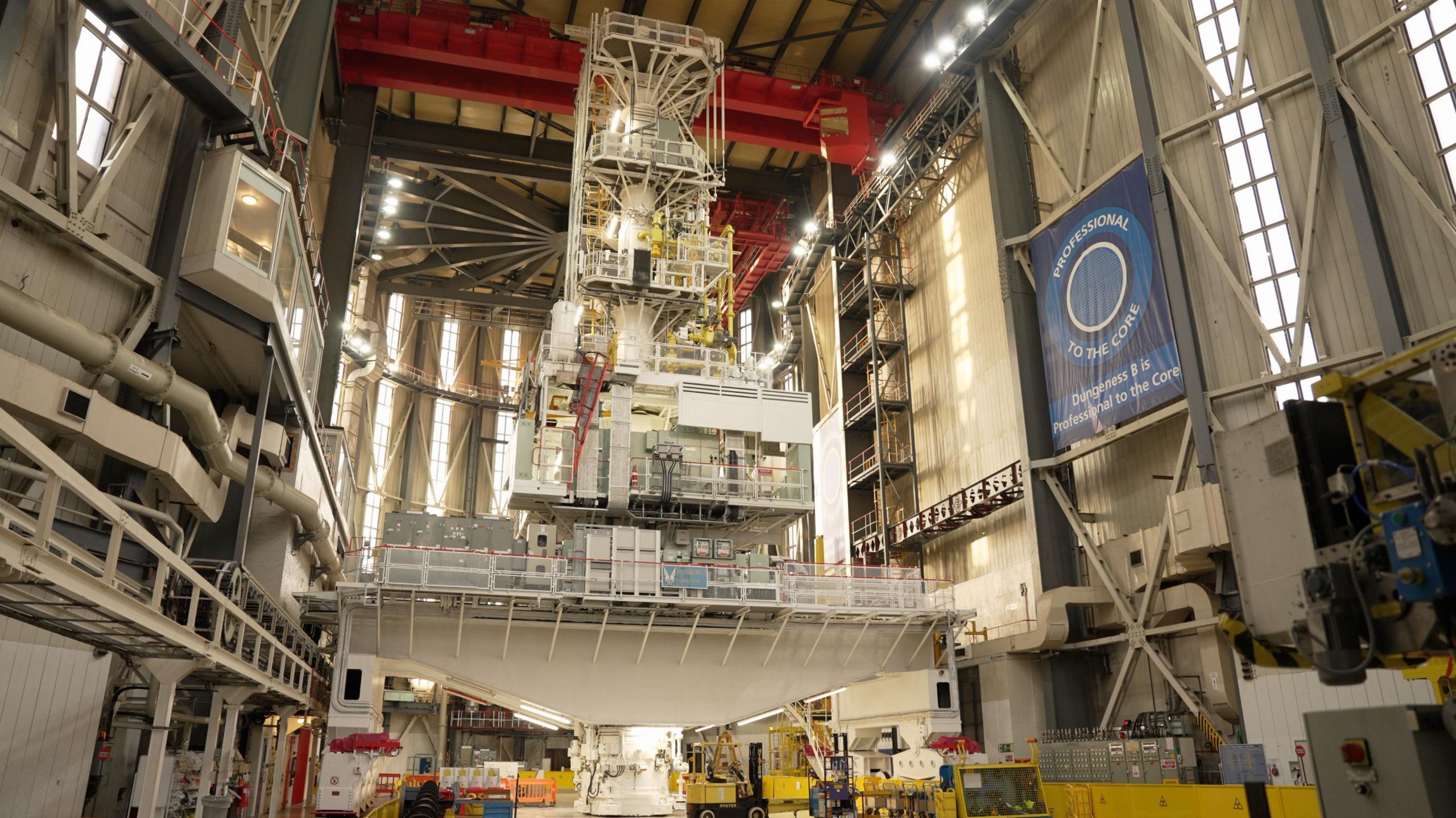
A 2,000 tonne crane will help move more than 400 rod-filled assemblies
Buried under the floor are the uranium-filled fuel assemblies that powered the station's two nuclear reactors.
There are more than 400 rod-filled assemblies in each reactor and it will take six years to safely remove them all.
It is done with the help of a giant 2,000 tonne crane that will carefully lift each one out before moving them into another part of the plant to cool.
Plant Manager, Paul Windle, said: "So far we have removed around 25% of the fuel from one reactor.
"We have got a long journey ahead."
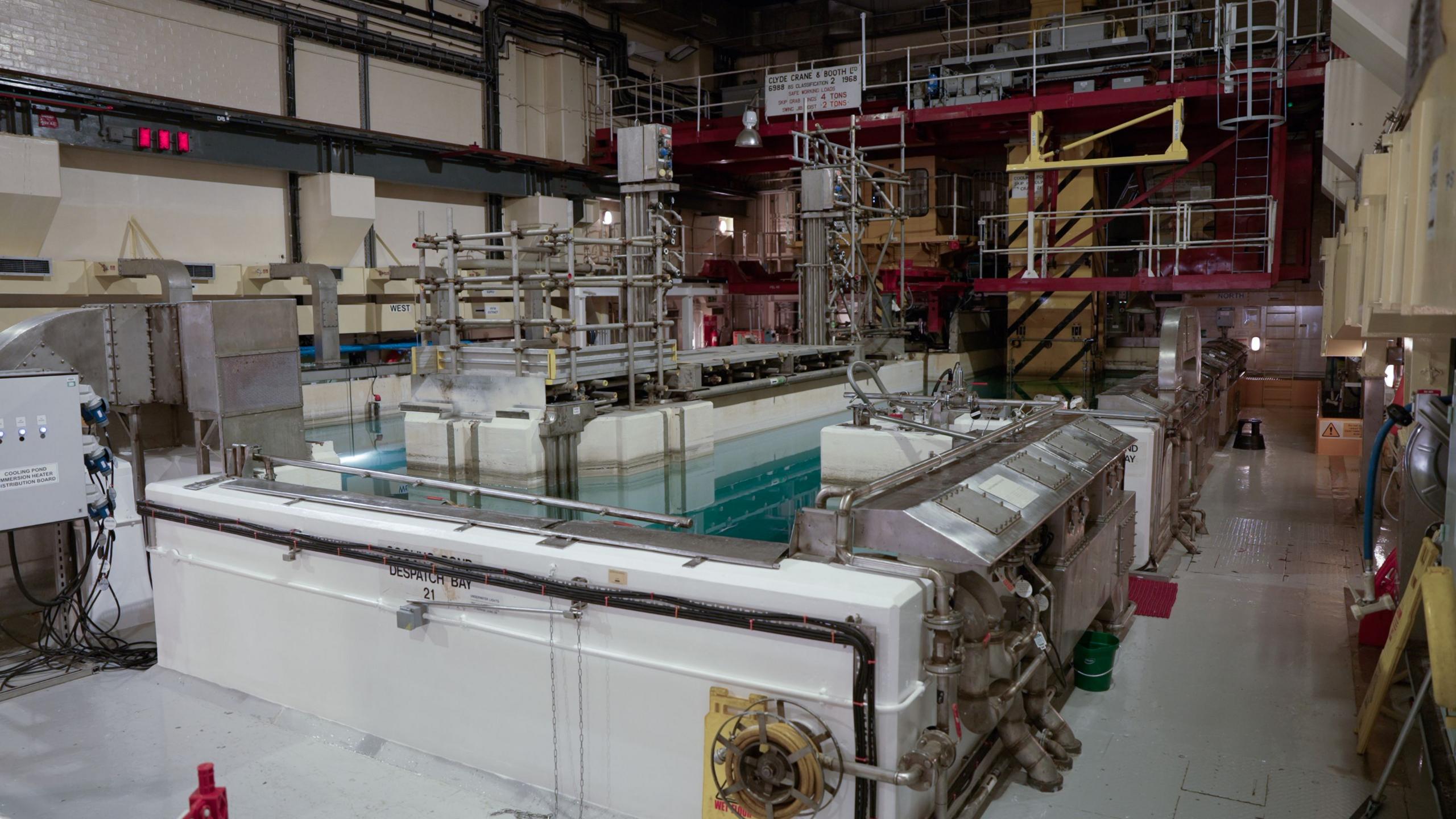
From the Reactor Hall the fuel ends up in an area called the ponds
From the reactor hall the fuel ends up in an area called the ponds.
The fuel, still hot, is stored under water here for 90 days before it is deemed safe enough to be placed into steel flasks which will be moved on to lorries to begin the journey to a nuclear waste facility at Sellafield in Cumbria.
Dungeness B was the first advanced gas cooled nuclear reactor to start construction in the UK.
It was at the vanguard of 20th Century nuclear power generation.
However, in the face of technical challenges that were seen to be too expensive and complicated to address, the decision was taken by EDF to halt energy production.
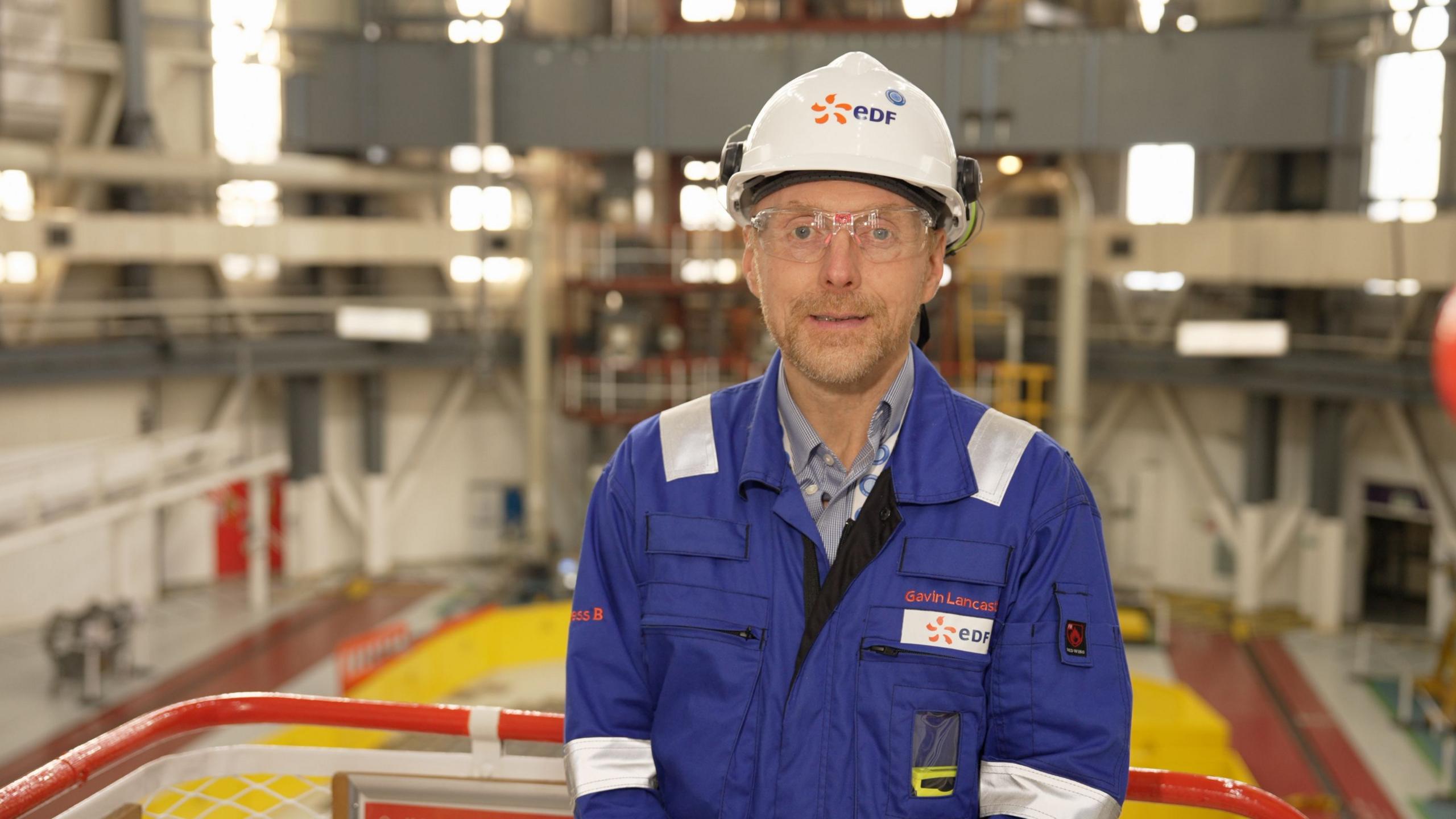
Gavin Lancaster is the station's director
The station director, Gavin Lancaster, said: "Some of the components date from the 1960s and the 1970s when we constructed.
"When we then did the analysis and the modelling, we determined that rectifying those components could be done - but it would take time and cost, and subsequently we made the correct decision at the time to cease generation."
About 700 people still work on the site.
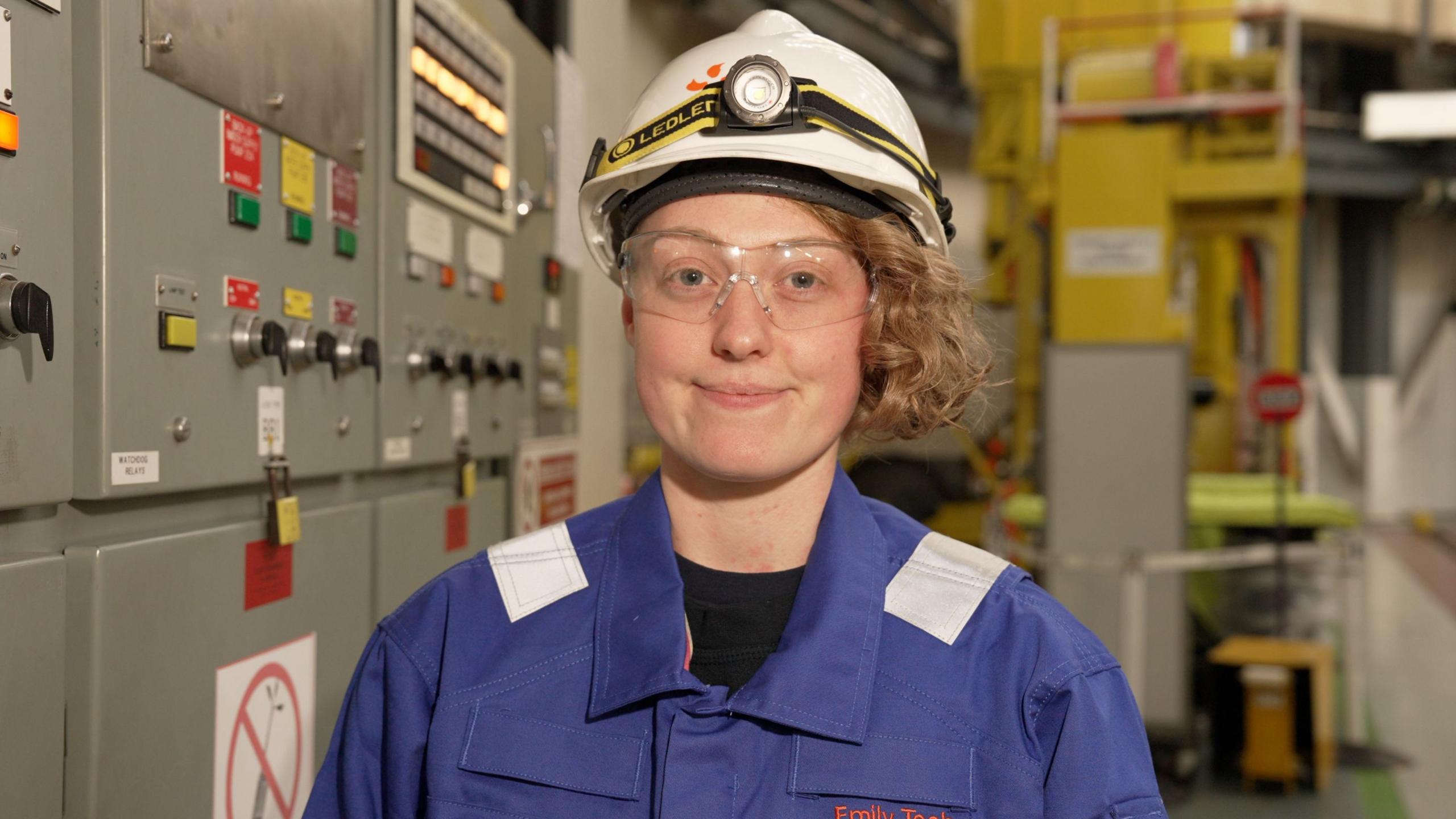
Emily Teehan joined the station as an apprentice
Emily Teehan is an electrical maintenance technician who has worked at Dungeness for seven years.
She said: "I came here on a school trip and I thought 'this looks really fun'. I applied for an apprenticeship and here I am."
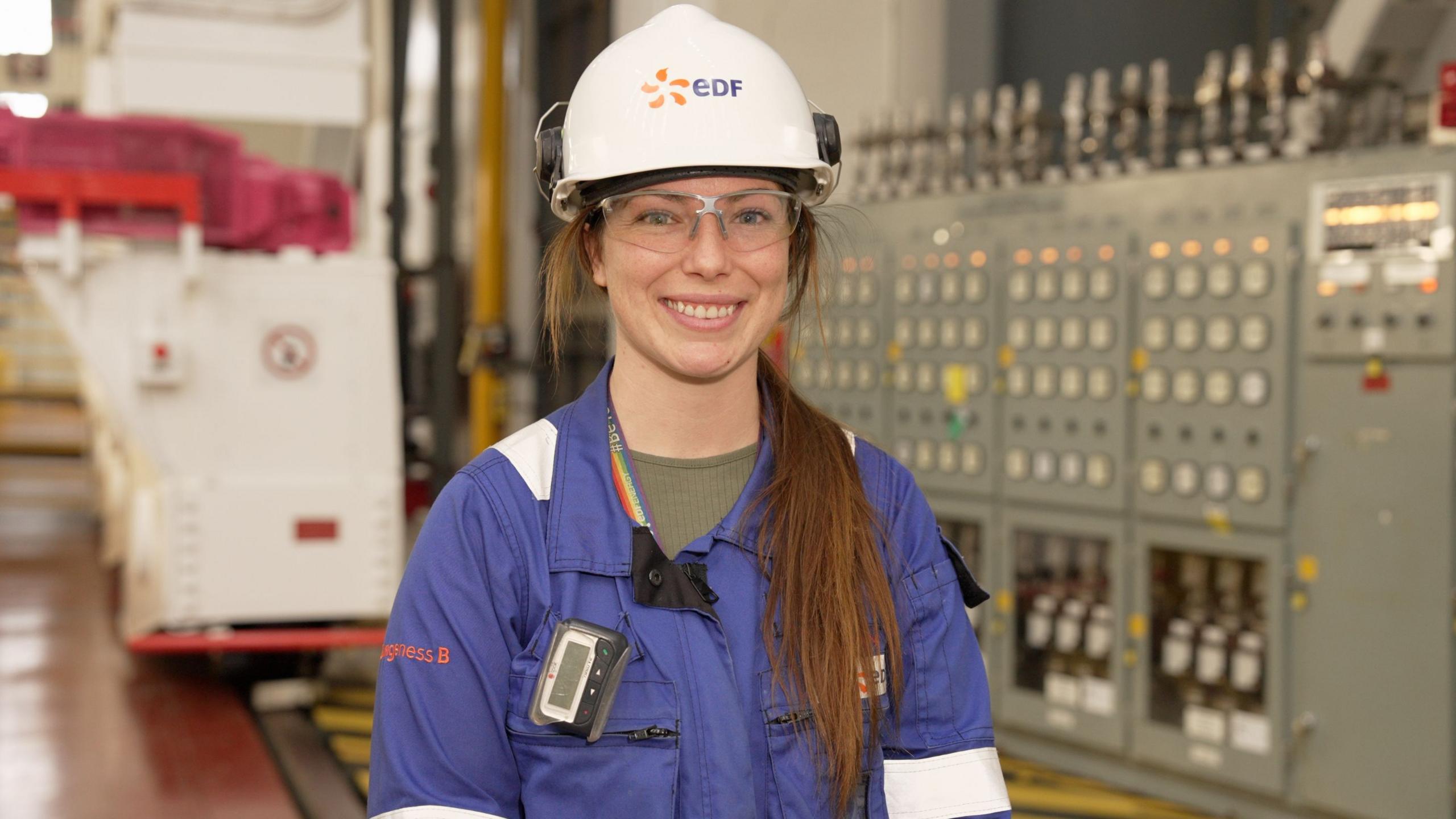
Chloe Tilly is the third generation of her family to work
Environment safety engineer, Chloe Tilly, is the third generation of her family to work at the power station.
She said: "From grandads, grandmas, cousins, brother, lots of people . It's the biggest employer round here, we feel very fortunate to have it on our doorstep."
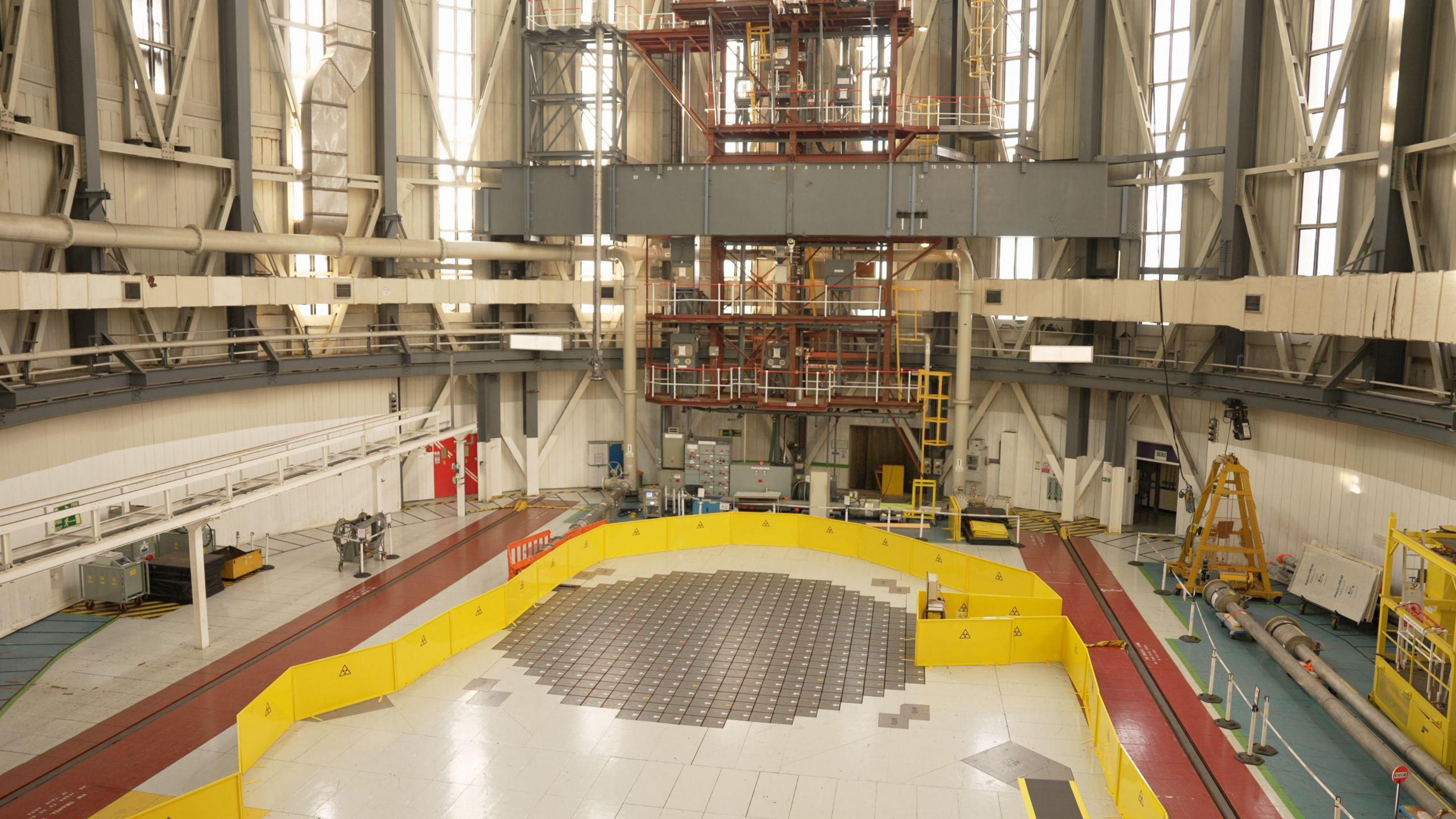
Dungeness B stopped electricity generation in September 2018
Dungeness B first connected to the grid in April 1983, stopping electricity generation in September 2018.
During its lifetime it created 142 terawatt-hours of electricity - enough to power every home in Kent for more than 50 years.
So what are the chances of another nuclear power plant being built here?
Mr Lancaster says: "This is a great location for new nuclear. We have got a skilled workforce and a very engaged supportive community so certainly we are open to discussions."
Follow BBC Kent on Facebook, external, on X, external, and on Instagram, external. Send your story ideas to southeasttoday@bbc.co.uk, external or WhatsApp us on 08081 002250.
Related topics
- Published8 June 2021
